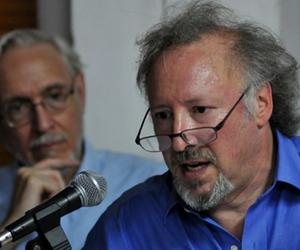Presentation of two books proposing dialogue between Havana and Washington
- Submitted by: Camila
- Society
- 10 / 16 / 2014

One written by Cuban and another by Americans, both books tell the same story from each side of the sea. "Back Channel to Cuba, The Hidden History of Negotiations Between Washington and Havana," by Willliam LeoGrande and Peter Kornbluh and "From confrontation to attempts at standardization. The United States policy toward Cuba" by Elier Ramirez and Esteban Morales show the varied attempts by both governments to bring good relationships.
One of the first surprises encountered by American writers was that every president of his country since Eisenhower have had any approach to talks with the island openly or veiled.
According to Kornbluh, it began to materialize during the administration of John F. Kennedy, when the premier used intermediaries, James Donovan initially to negotiate the departure of the Bay of Pigs prisoners. On the eve of the assassination in Dallas, an emissary from JFK, John Daniel, was on the island to talk to Fidel Castro; and journalist Lisa Howard, active figure in bilateral communications.
Memos and other declassified documents indicate that the Cuban government also had an initiative, a gesture, with almost all American presidents, in pursuit of trying to improve relations. Personalities such as Gabriel García Márquez and the management of Coca-Cola, J. Paul Austin, became ambassadors in this long process.
Passing the presidential cycles Johnson, Nixon, Carter, Reagan, etc., "Back Channel to Cuba" comes to the present.
For the simultaneous presentation of these two volumes Elier Ramirez said that the close links it has reached the academic and cultural exchange between Cuban and American, and what might be in the future if there are no current regulations.
In agreement with Kornbluh and LeoGrande, Ramirez stressed that this research "is not only to provide a historical science, but that this contribution can also have a transformative impact on our contemporary, that moves us to at least one more civilized relationship. Progress in all areas where there may be a common interest, truly national, is the best way to break the inertia of disagreement. "
Source: OnCuba
Comments